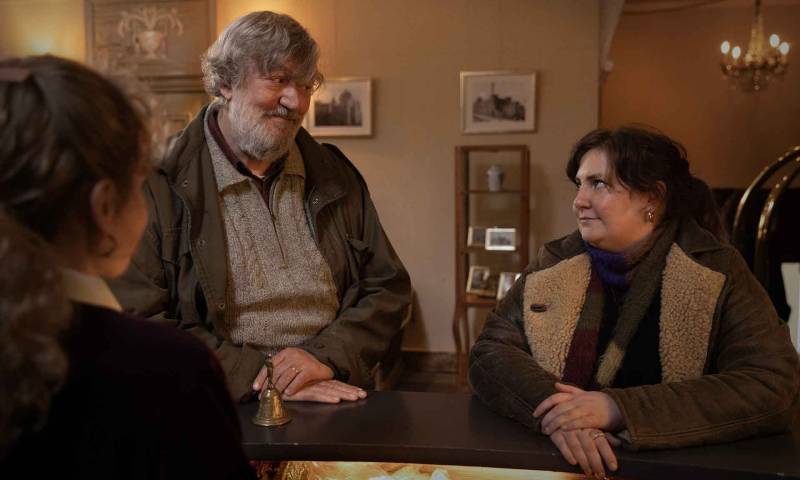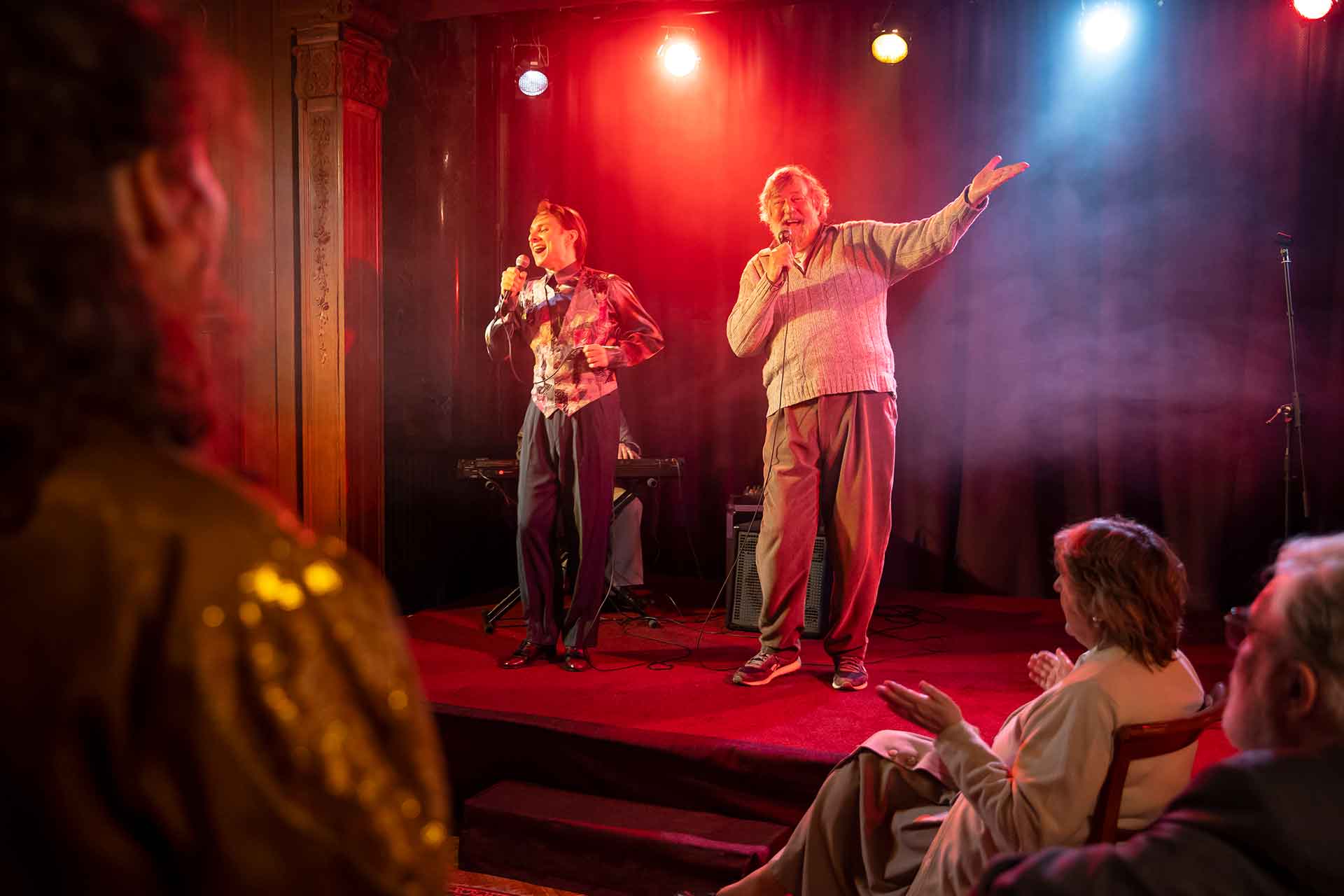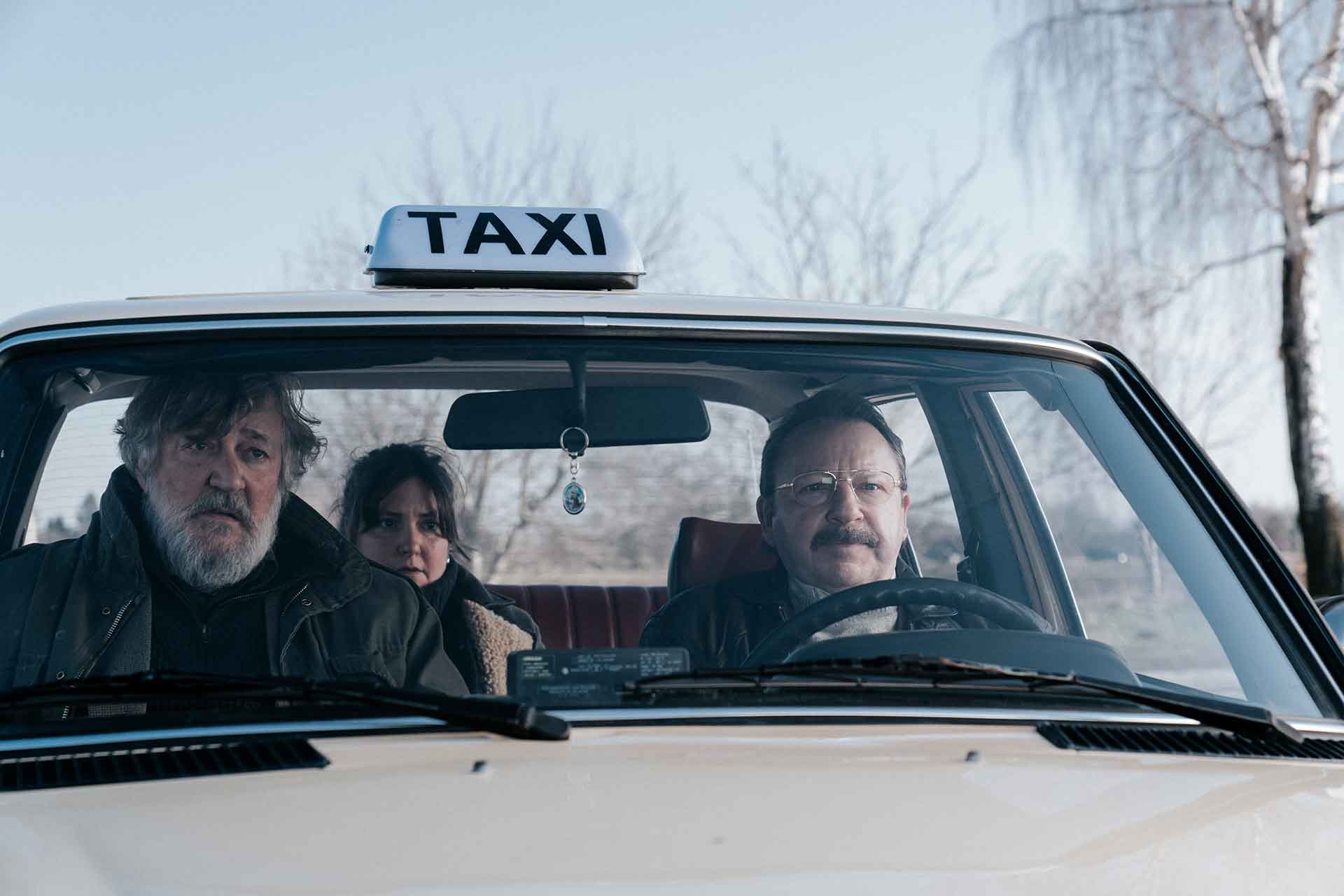There are so many ways that Treasure could go wrong. The left-field casting of lit-Brit Stephen Fry as a Polish Holocaust survivor and Manhattan enfant terrible Lena Dunham as his unhappy daughter. The clichés and stereotypes of a cross-generational roots trip to the Old Country. The inevitable tonal shifts from awkwardness to farce to pathos.
So it’s a relief to report that Treasure (opening Friday June 14 at the Rialto Cinemas 9, Opera Plaza Cinemas 4, Century Tanforan 20 and Century 20 Redwood Downtown) delivers a memorably meandering journey with a couple of knockout sequences. German writer-director Julia von Heinz brings a blend of tenderness and toughness to her stripped-back adaptation of Too Many Men, the 2001 autobiographical novel by New York writer Lily Brett. Rewarding up to a point, the film would have benefitted from more of a willingness to look — and venture — into the abyss.
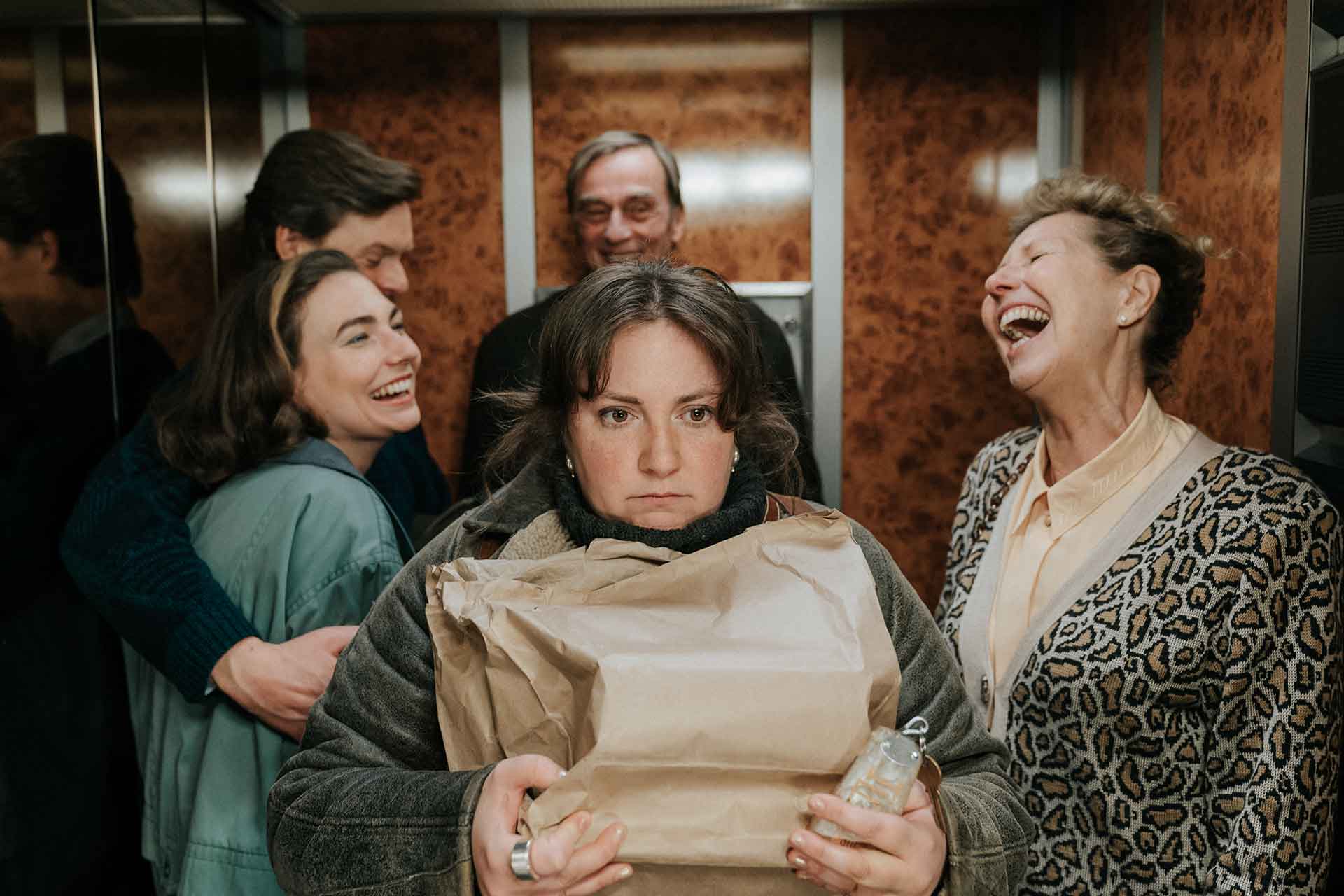
Treasure is keenly interested in the complicated Polish experience of World War II and its Soviet afterlife, as well as the immense suffering of the Jewish population. The freshest element of the film, though, is its allusive depiction of the difficulties of being a child of Holocaust survivors.
Set in 1991, a hazy patch of the past that initially puts us at some distance from the characters and place, Treasure opens with Ruth and Edek at a cheerless Warsaw airport. We gather that the trip is Ruth’s idea; a music journalist in her mid-30s, she’s decided she wants to see where her dad grew up.
Ruth is underwritten — not a fatal flaw, since the film spins on what’s gone unsaid between her and her father — so we fill her in with Dunham’s screen persona: intelligent, underachieving, unsentimental, unlucky in love and self-aware (up to a point). Ruth is witheringly uncharismatic, but gets her juice from Dunham’s overriding quality as an actress: unpredictability.
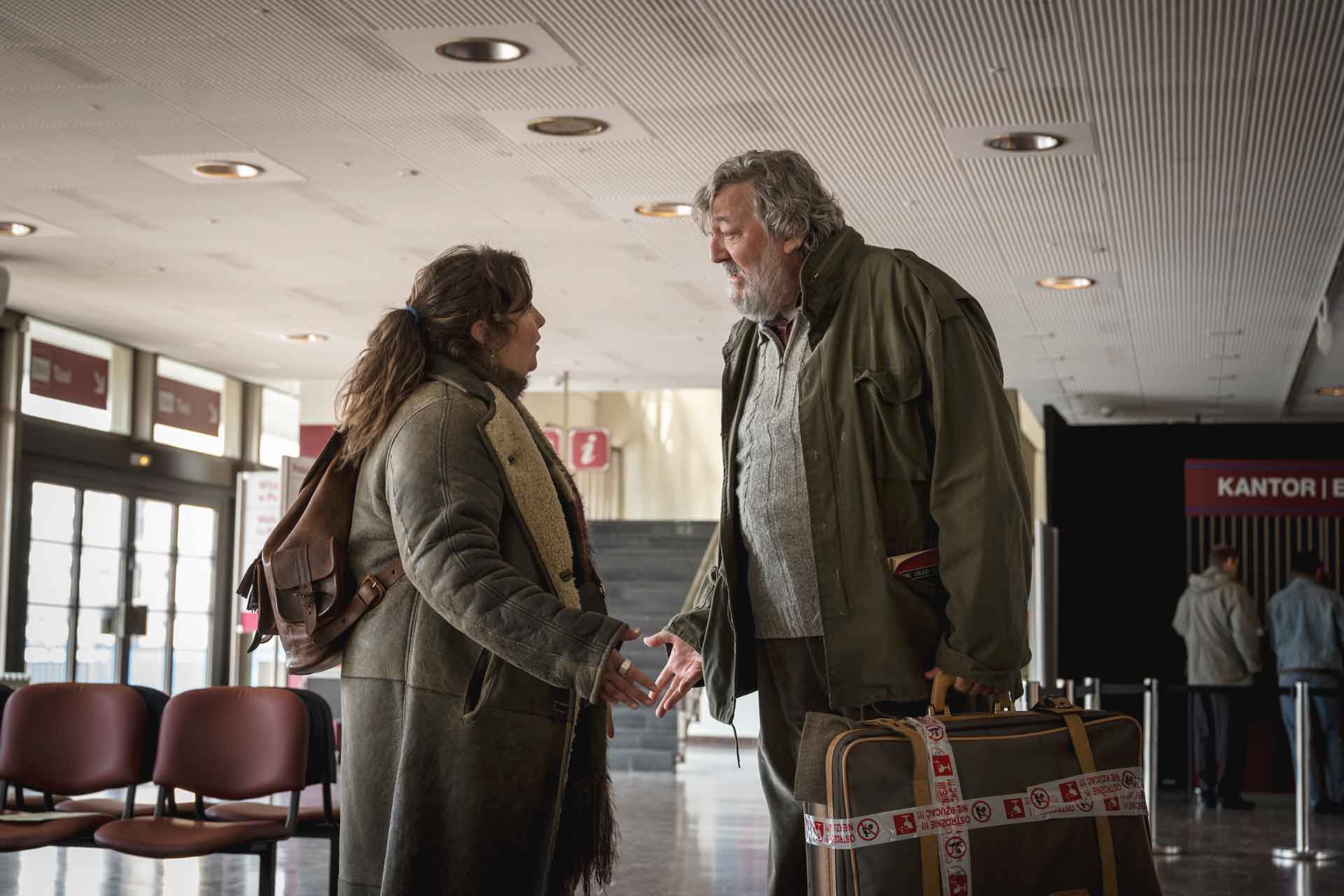
Fry plays Edek as a 20th Century Tevye, complete with bushy gray beard and booming voice. But where the Yiddish-speaking original bore the burdens of shtetl life on a milk wagon, Edek labors to give the impression of a man whose pain, if not every iota of sadness, is in the past.
